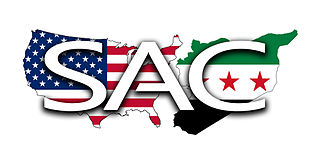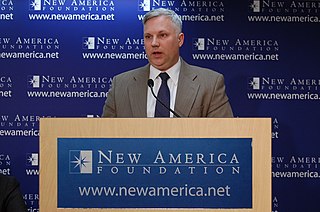
The situation for human rights in Syria is considered one of the worst in the world and has been globally condemned by international organizations like the United Nations, Human rights Watch, Amnesty International, and the European Union. Civil liberties, political rights, freedom of speech and assembly are virtually non-existent under the Ba'athist government of Bashar al-Assad; which is regarded as "one of the world's most repressive regimes". The 50th edition of Freedom in the World, the annual report published by Freedom House since 1973, designates Syria as "Worst of the Worst" among the "Not Free" countries. The report lists Syria as one of the two countries to get the lowest possible score (1/100).

The Syrian civil war is an ongoing multi-sided conflict in Syria involving various state-sponsored and non-state actors. In March 2011, popular discontent with the rule of Bashar al-Assad triggered large-scale protests and pro-democracy rallies across Syria, as part of the wider Arab Spring protests in the region. After months of crackdown by governments security apparatus, various armed rebel groups such as the Free Syrian Army began forming across the country, marking the beginning of the Syrian insurgency. By mid-2012, the crisis had escalated into a full-blown civil war.

Syrian American Council is a 501c3 grassroots organization of Syrian-Americans that does community organizing, awareness-raising, youth empowerment, media outreach, advocacy, and support for Syrian-Americans and the Syrian Opposition. As the largest and oldest grassroots organization of Syrian-Americans, it identifies its mission as “to organize and mobilize the Syrian-American community so that its voice is heard on issues of critical importance to Syrian-Americans."
The following is a timeline of the Syrian Civil War from January to April 2012, during which time the spate of protests that began in January 2011 lasted into another calendar year. An Arab League monitoring mission ended in failure as Syrian troops and anti-government militants continued to do battle across the country and the Syrian government prevented foreign observers from touring active battlefields, including besieged opposition strongholds. A United Nations-backed ceasefire brokered by special envoy Kofi Annan met a similar fate, with unarmed UN peacekeepers' movements tightly controlled by the government and fighting.

Sednaya Prison, nicknamed the "Human Slaughterhouse" is a military prison near Damascus in Syria operated by the Syrian government. The prison has been used to hold thousands of prisoners, both civilian detainees and anti-government rebels. The Syrian Observatory for Human Rights (SOHR) estimated in January 2021 that 30,000 detainees have perished in Sednaya from torture, ill-treatment and mass executions since the outbreak of the Syrian Civil War, while Amnesty International estimated in February 2017 "that between 5,000 and 13,000 people were extrajudicially executed at Saydnaya between September 2011 and December 2015."
The 2014 Syrian detainee report, also known as the Caesar Report, formally titled A Report into the credibility of certain evidence with regard to Torture and Execution of Persons Incarcerated by the current Syrian regime, is a report that claims to detail "the systematic killing of more than 11,000 detainees by the Syrian government in one region during the Syrian Civil War over a two and half year period from March 2011 to August 2013". It was released on 21 January 2014, a day before talks were due to begin at the Geneva II Conference on Syria, and was commissioned by the government of Qatar. Qatar has been a key funder of the rebels in Syria. The Syrian government questioned the report due to its ties to hostile sides against the Syrian government and pointed to how many of the photos were identified as casualties among international terrorists fighting the Syrian government or Syrian army troops or civilians massacred by them due to supporting the Syrian government.

Joel Rayburn is a retired United States Army officer, former diplomat, and historian who served as the United States Special Envoy for Syria from 2018 to 2021. He has published books and articles about the American invasion of Iraq in 2003 and its results. From January to July 2021 he served as a special advisor for Middle East affairs to U.S. Senator Bill Hagerty (R-TN). He is currently a Fellow in the National Security Program at the New America Foundation.

The Battle of Idlib was a military operation in the Idlib Governorate, during the Syrian Civil War, conducted by rebels against Syrian government forces defending Idlib city.
The following is a timeline of the Syrian Civil War from August to December 2015. Information about aggregated casualty counts is found at Casualties of the Syrian Civil War.

Law enforcement in Syria is carried out by the Public Security Police, which is a force for general policing duties; internal security duties are carried out by different intelligence agencies. The Political Security Directorate is one of these agencies and is under the guidance of the Ministry of Interior of the Syrian government. The Directorate is used for covert intelligence gathering and internal security issues within Syria. Syria has been an INTERPOL member since 1953. Since the outbreak of the Syrian Civil War, much of Syria has been outside the control of the Syrian government. Currently, the Asayish are responsible for policing in the Autonomous Administration of North and East Syria, the Turkish-backed Free Syrian Police in areas under the Turkish occupation of northern Syria, and various Syrian opposition groups around Idlib
The Caesar Syria Civilian Protection Act of 2019, also known as the Caesar Act, is United States legislation that sanctions the Syrian government, including Syrian president Bashar al-Assad, for war crimes against the Syrian population. The Act was signed into law by President Trump in December 2019, and came into force on June 17, 2020.
The Khan Shaykhun chemical attack took place on 4 April 2017 on the town of Khan Shaykhun in the Idlib Governorate of Syria. The town was reported to have been struck by an airstrike by government forces followed by massive civilian chemical poisoning. The release of a toxic gas, which included sarin, or a similar substance, killed at least 89 people and injured more than 541, according to the opposition Idlib Health Directorate. The attack was the deadliest use of chemical weapons in the Syrian civil war since the Ghouta chemical attack in 2013.
During the Syrian Civil War, Russian and Syrian government forces have conducted a campaign that has focused on the destruction of hospitals and medical facilities within areas not under the control of the Syrian government. Russian and Syrian officials have repeatedly denied deliberately targeting medical facilities.
The following is a timeline of the Syrian Civil War from September to December 2017. Information about aggregated casualty counts is found at Casualties of the Syrian Civil War.

Ibrahim Al-Omar, was a Syrian journalist and camera operator for Al Jazeera in Idlib, Syria, who was killed during the Syrian Civil War.
The following is a timeline of the Syrian Civil War from September to December 2018. Information about aggregated casualty counts is found at Casualties of the Syrian Civil War.
The following is a timeline of the Syrian Civil War from January to April 2019. Information about aggregated casualty counts is found at Casualties of the Syrian Civil War.
Americans for a Free Syria is a nonpartisan American nonprofit organization that campaigns for human rights in Syria and advocates for humane treatment of Syrian refugees.
The following is a timeline of the Syrian Civil War from September–December 2019. Information about aggregated casualty counts is found at Casualties of the Syrian Civil War.
The following is a timeline of the Syrian civil war for 2020. Information about aggregated casualty counts is found at Casualties of the Syrian civil war.








